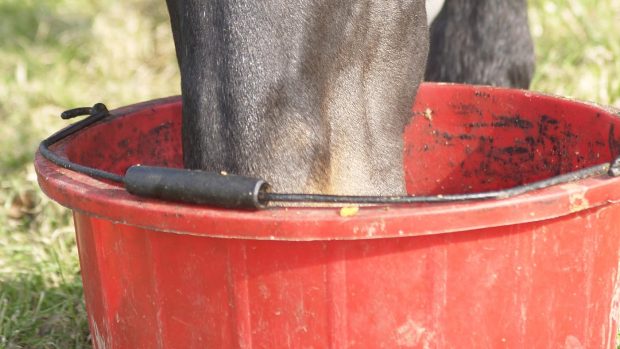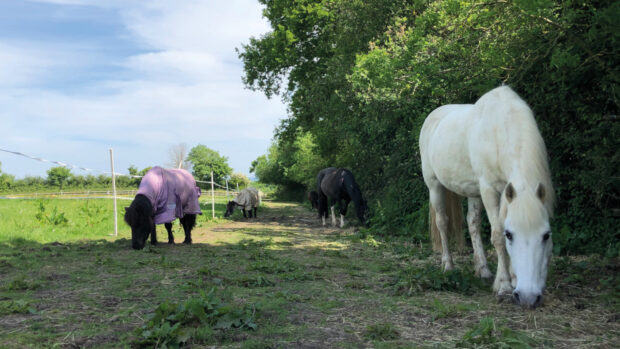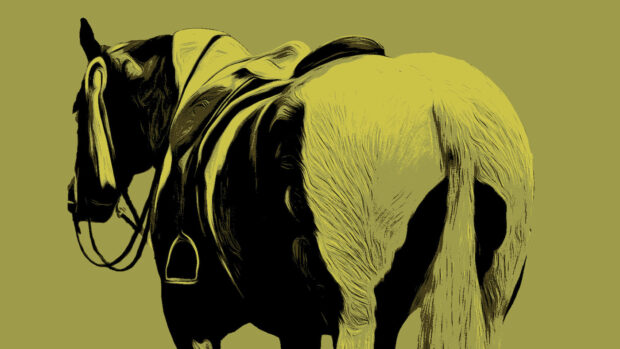As with an overweight person, a rapid diet is not the best way to reduce the size of an overweight horse. Weight reduction should always be a slow, steady process to prevent the horses from suffering stress or any metabolic problems. With weight loss patience is the key.
Weight watchers
- Make changes in both the type and amount of feed gradually. You should reduce rations by no more than 10% during a seven- to 10-day period, unless recommended otherwise by your vet.
- Monitor your horse’s progress using a weight tape, piece of string, or weight bridge. When your horse’s weight plateaus, gradually cut back the rations again.
- Increase the horse’s workload gradually in both time and intensity as his fitness improves.
- Provide plenty of clean fresh water as this helps the horse’s digestive system function efficiently. A change to a high fibre diet can lead to an impaction and colic if insufficient water is available.
- Use forage feeds with high quality fibre which are low in total energy, eg: switch from alfalfa to grass hay. Hay that has been cut late has an increased fibre content and is less digestible so is likely to be less fattening.
- Choose compound feeds which are high in fibre and low in fat and measure them by weight, not volume.
- Maximise the time taken to eat a given amount by offering hay in double or triple haynets to reduce the amount available with each bite
- Feed the overweight horse separately from others to prevent it from stealing other horses’ feeds
- Limiting access to grass is an important part of controlling obesity in a horse. Turn out on poor grazing where possible and also limit the area of grass available. Turnout in a sparse “starvation” paddock is beneficial.
- Balance the horse’s diet against its age and activity level. Never feed more than is needed for the level of work being done.
- Make sure the horse’s vitamin, mineral and protein requirements are being met.
Staying slim
Once your horse has slimmed down to an ideal weight, it is important to maintain it. This means carefully adjusting his ration to stabilise his condition. Exercise will continue to be important and never forget the fattening effects of grass.
| Don’t miss this week’s veterinary clinic in Horse & Hound (21 August), which focuses on the dangers of dehydration, or click here to subscribe and save 30% plus Horse & Hound delivered to your door every week. |



